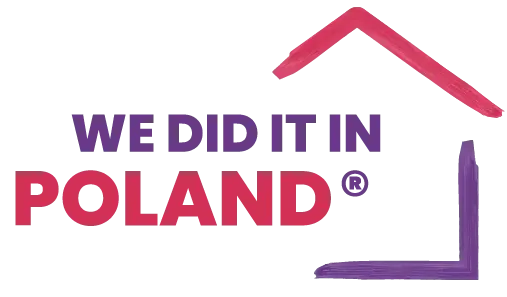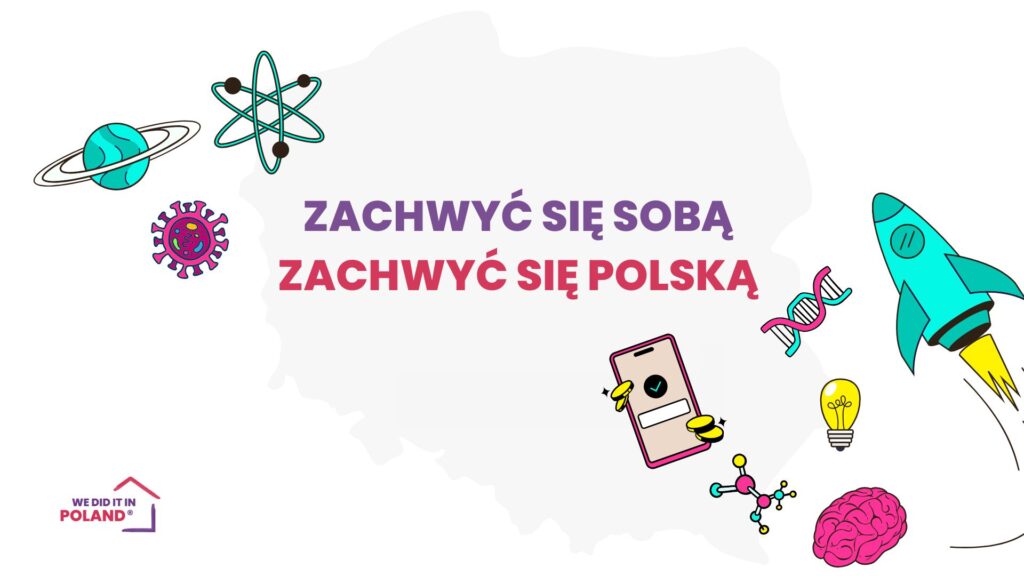BLIK has revolutionized the payment industry, changing the payment habits of Poles. It has introduced new security standards that combine with convenience, speed and intuitive operation. It is now the national leader in mobile payments, facilitating the daily transactions of more than 18.5 million users. BLIK is also taking its next steps on the international fintech scene. Romania and Slovakia are just the beginning, as the ambitions are much bigger. On building a global brand on a foundation of local experience, challenges and technological trends We talk to Monika Król, Vice President of the BLIK.
Your overseas expansion is gaining momentum – what are the biggest challenges in building a global brand for Polish fintech?
Foreign expansion is a natural stage of development for us – BLIK has been successfully meeting the needs of Polish users for years, but its potential is definitely wider. Of course, we are aware that every market is governed by its own laws – not only in terms of regulation, but also in terms of competition and user habits.
Entering new markets means adapting to local regulations, such as strong authentication or data protection. This requires close cooperation with partners – both banks and payment platforms – who know the specifics of the country and are able to support us in the implementation and popularization of the service.
In Poland, we built our position step by step, from scratch, and we know that abroad we have to go this way too – with the difference that now we have experience, a proven model and a much stronger brand. That’s why our strategy is to go step by step. We are starting with the CEE region, where we see potential and great openness to new e-commerce solutions. We believe that Romania as a key e-commerce market in terms of growth potential, but also Slovakia as our hub for Eurozone countries are a very good opening for BLIK’s European ambitions.
Building BLIK’s recognition in new markets is a process that we need to carry out in parallel with technological work. We are aware that with the support of shareholders, communication is worth keeping in our own hands – this approach also works in the context of expansion.
Can Poland become a center of financial innovation in Europe? What conditions must be met for us to compete with global players?
For years, Poland has stood out from Europe in terms of innovation in the financial sector. Our banking system is one of the most technologically advanced, and users are quickly adopting new digital solutions. BLIK, which in a short period of time has become the dominant mobile payment method in the country, perfectly illustrates the potential of Polish fintech to compete in the international market.
According to data from an EY report, in 2023 BLIK boasted the highest number of transactions of any European system, at more than 1.7 billion. And the growth rate is accelerating – in 2024 the number of transactions in Poland rose to 2.4 billion. BLIK’s strong position in the Central European region also gives it the legitimacy to discuss, together with representatives of other payment systems being developed in Europe, undertaking multi-channel cooperation to ensure the free transfer of money between Europeans – regardless of their country of residence and the currency they use on a daily basis. This is especially important in view of the changes in the geopolitical environment that are currently being observed.
The Polish startup ecosystem is developing dynamically, and our presence on the international arena is becoming more pronounced. Highly skilled IT professionals, support from gas pedals and incubators, and growing investor interest are fostering an environment of innovation. Nevertheless, we still face challenges related to funding, internationalization and regulation.
Key to the future will be further investment in technologies such as artificial intelligence and big data analytics, which will enable more effective fraud detection and optimization of payment processes. Poland’s competence advantage in IT, however, requires systemic support for innovative companies to fully realize its potential.
Equally important is close cooperation between the private and public sectors in the development of digital infrastructure and the promotion of Polish solutions in foreign markets. Only in this way will we build an ecosystem that will foster expansion, and Poland will strengthen its position as a regional fintech leader.
BLIK has come a long way from an innovation in the mobile payment market to one of the most widely used payment methods in Poland. What next steps can further strengthen its position at home and abroad?
Fact, this year marks 10 years since BLIK appeared on the market. Since then, the system has become an integral part of everyday payments in Poland, earning the trust of millions of users.
In addition to growth in the local market, our goal for the coming years is international expansion. We are starting with Romania and Slovakia, and then plan to expand further in the Central and Eastern European region. It will be important to establish strategic partnerships with banks and payment platforms, which will enable us to seamlessly integrate BLIK into local financial systems.
In parallel with international expansion, we plan to steadily develop our operations in Poland. We are consistently expanding services aimed at e-commerce and improving P2P transactions, responding to the growing needs of users. We are also intensifying work on the implementation of recurring and recurring payments, which will become an important part of our offer.
A new chapter lies ahead – one in which BLIK not only grows, but becomes the payment standard in new markets. In Poland, we’re setting an ambitious goal: BLIK x2, which means doubling the business in three years – more transactions – from 2.4 billion in 2024 to as many as 5 billion transactions in 2027, and what’s the result? More payment value and even wider reach.
What technological innovations – such as open banking or AI – can influence the development of BLIKA and the future of digital payments?
Without a doubt, the digital payments revolution is gaining momentum, and innovations such as open banking and artificial intelligence are opening up new opportunities for BLIK. Open banking brings prospects in terms of transaction authorization and integration with a variety of financial services. This naturally translates into a more tailored and convenient experience for the user. Open APIs give BLIK a chance to better connect with banks, not only in Poland, and facilitate expansion abroad. Importantly, the same APIs speed up and secure data exchange between financial institutions.
At the same time, artificial intelligence is strengthening its position in detecting fraud and analyzing the behavior of our users. This can allow us to counter fraud even more effectively and tailor our offerings more precisely to individual customer expectations.
Our ambition is for BLIK to not only seamlessly adapt to the upcoming trends, but to actively shape the development directions of modern payments. In the near term, technologies such as AI, open banking and biometrics have the potential to make BLIK payments even more intuitive and instant, while featuring the highest level of security.
How is BLIK responding to the growing threats of cyber security and user protection?
We view cyber security as an ongoing, dynamic process, not a one-time task. From the very beginning, the foundation of BLIK has been an operational model that minimizes the risk of fraud. The unique two-minute one-time code and the need to authorize each transaction in the banking application are mechanisms that realistically increase the level of security.
However, the effectiveness of our security measures is not just a matter of advanced technology. Key for us are strong and operational relationships with the banking sector and law enforcement agencies, including the Police. We implement joint initiatives that rely on the rapid flow of information and early monitoring of potential threats. This proactive approach allows us to maintain a high level of protection in an ever-evolving digital environment.
On the other hand – no technology can replace user awareness. That’s why we also invest in education, run campaigns that don’t scare, but show how to be vigilant. Digital security today is a combination of infrastructure, cooperation and everyday decisions of each of us. And I think that’s how it needs to be understood.







